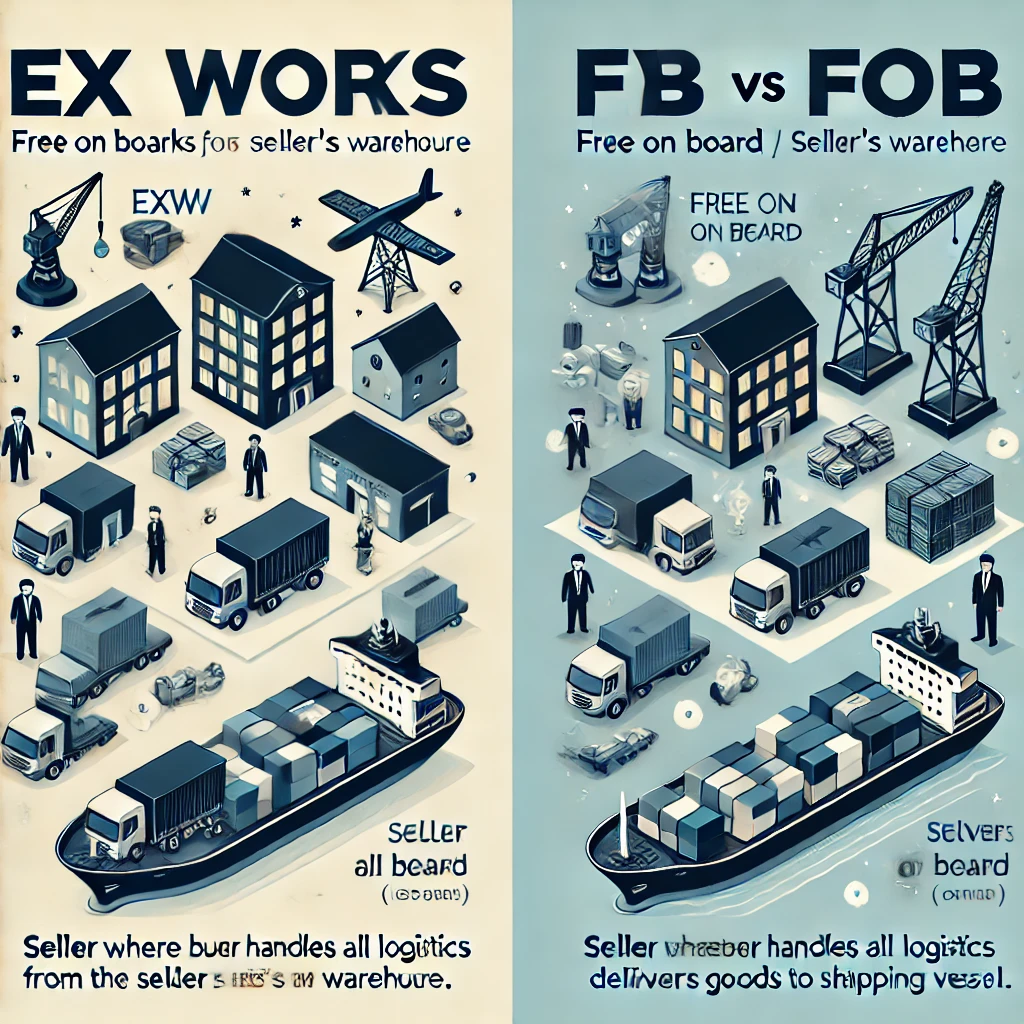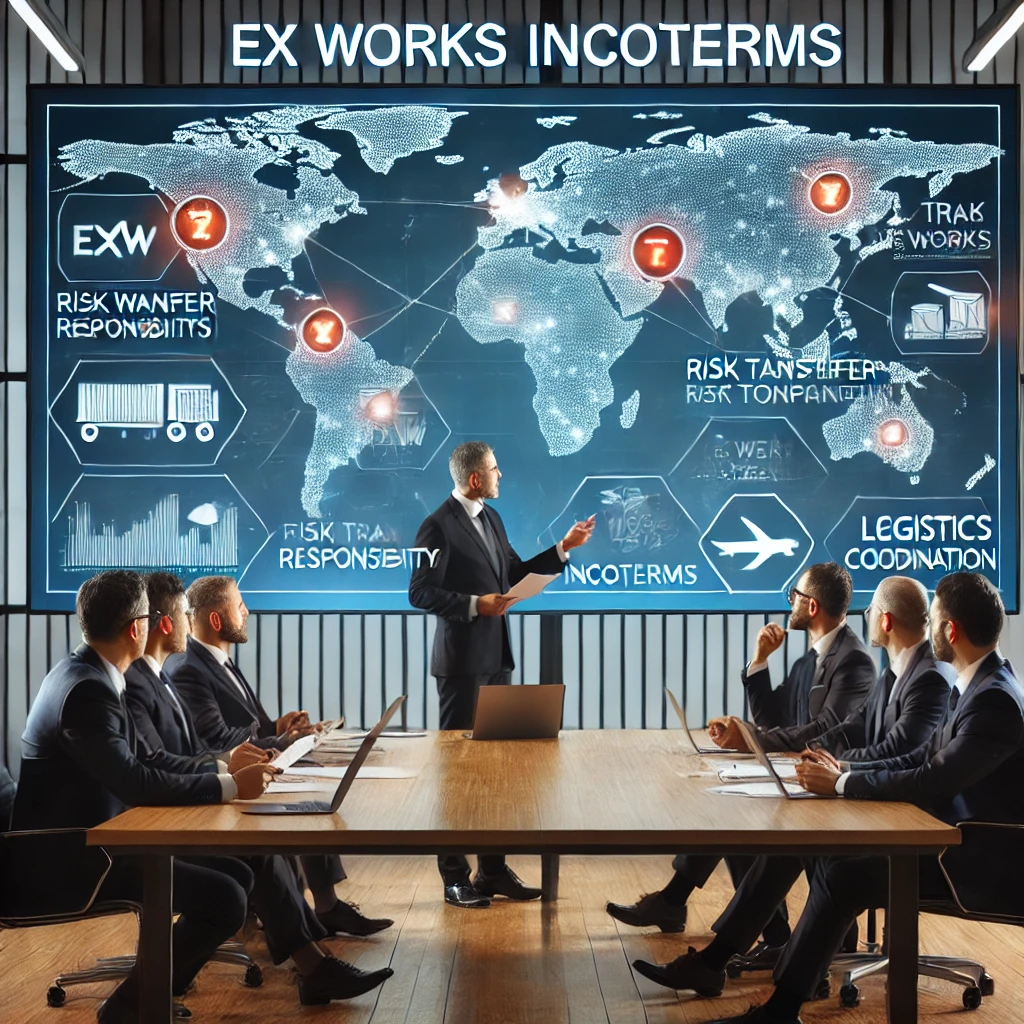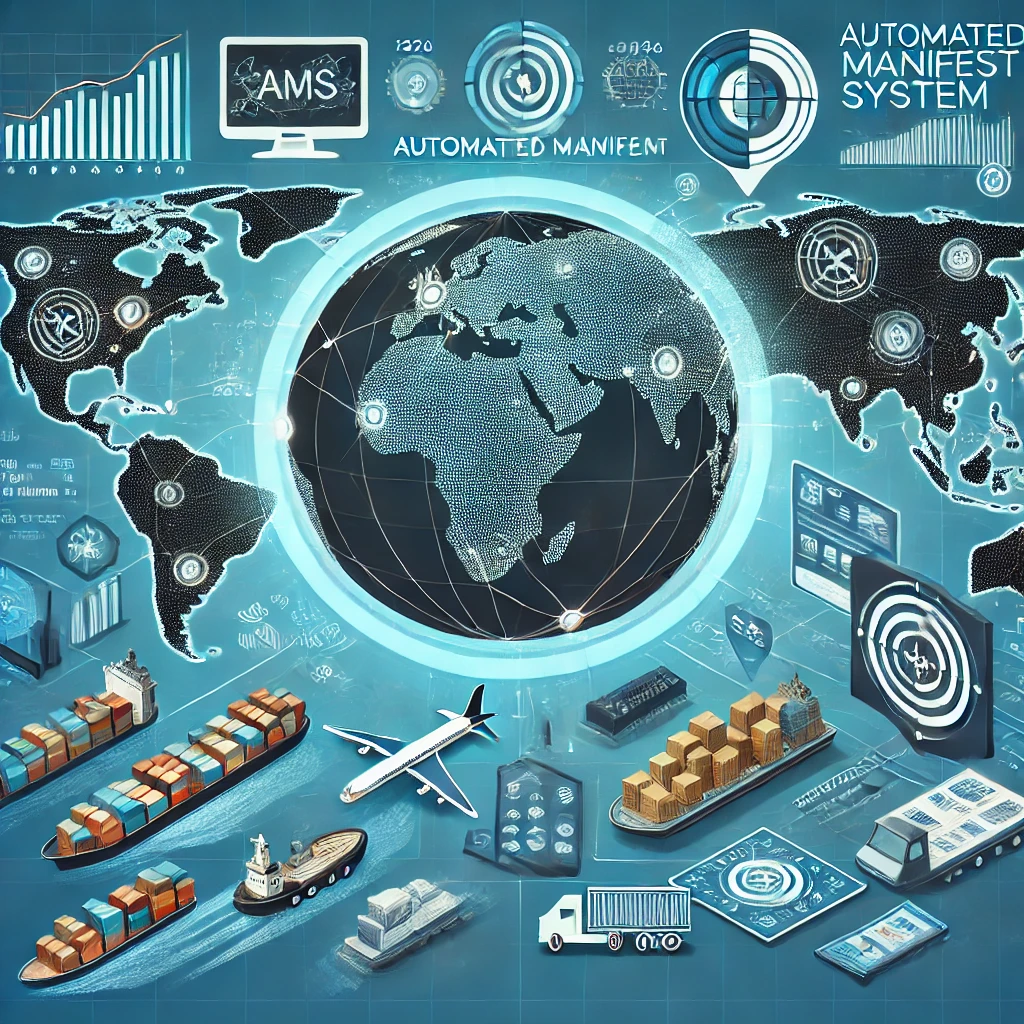Key Insights on Ex Works Meaning
This article provides a detailed explanation of Ex Works, highlighting its key features, practical applications, and relevance for professionals and businesses.

What Does Ex Works (EXW) Mean?
Ex Works (EXW) is an Incoterm that places the maximum responsibility on the buyer. Under EXW, the seller only needs to make the goods available at their premises (factory, warehouse, or another agreed location). From that point forward, the buyer assumes all risks, costs, and logistics responsibilities for the shipment.
Key Responsibilities Under Ex Works (EXW)
Party | Responsibilities |
Seller | Prepares the goods for pickup and provides necessary documentation. |
Buyer | Handles transportation, export/import clearance, insurance, and delivery to the final destination. |

Key Features of Ex Works (EXW)
1. Minimal Seller Obligation
- The seller’s role is limited to preparing the goods and making them accessible.
- No requirement to handle loading, shipping, or customs clearance.
2. Buyer Takes Full Responsibility for Logistics
- The buyer is fully responsible for arranging transport and delivery.
- Provides more control over shipping costs and freight choices.
3. Commonly Used in International Trade
- Frequently used for bulk goods, machinery, and raw materials.
- Ideal for buyers with established logistics networks.
4. Requires Strong Import/Export Knowledge
- The buyer must handle export licenses, duties, and import regulations.
- Errors in documentation or shipping can cause delays or penalties.
5. Cost Savings for Sellers
- Since the seller does not arrange transportation, EXW reduces seller costs.
- However, buyers may face higher overall logistics costs.
Practical Uses of Ex Works (EXW)
1. Manufacturing & Bulk Exports
- Used by manufacturers selling raw materials or industrial goods.
2. Businesses with Established Freight Forwarding
- Companies with strong logistics partners prefer EXW for cost efficiency.
3. Direct International Procurement
- Ideal for buyers purchasing directly from manufacturers.
4. High-Value or Specialized Cargo
- Buyers shipping customized or fragile goods prefer EXW to manage logistics themselves.

Advantages and Disadvantages of Ex Works (EXW)
Advantages | Disadvantages |
Lower seller responsibility – The seller only prepares the goods. | Higher buyer responsibility – The buyer must handle all logistics. |
More control for the buyer – The buyer chooses the best transport options. | Customs clearance complexity – The buyer must manage all export/import processes. |
Potential cost savings – Buyers may negotiate better freight rates. | Higher risk for the buyer – Risk transfers immediately upon pickup. |
Ex Works vs. Other Incoterms
Incoterm | Seller’s Responsibility | Buyer’s Responsibility |
EXW (Ex Works) | Goods available at seller’s location. | Full responsibility for transport, customs, and insurance. |
FOB (Free on Board) | Seller delivers goods to the shipping vessel. | Buyer assumes risk once goods are on board. |
CIF (Cost, Insurance, and Freight) | Seller arranges freight and insurance to the buyer’s port. | Buyer handles import clearance and final delivery. |
DDP (Delivered Duty Paid) | Seller covers full transport, including import duties. | Buyer only receives the goods at the final destination. |

When to Use Ex Works?
- Best for experienced importers with strong logistics knowledge.
- Useful when buyers want full control over shipping routes and carriers.
- Ideal for manufacturers who want to minimize shipping responsibilities.
- Not recommended for buyers unfamiliar with customs processes.
Conclusion
Ex Works (EXW) Incoterms provide a clear and cost-effective trade agreement, placing the majority of responsibility on the buyer. While it offers logistics flexibility and potential cost savings, it also requires expertise in transportation and customs clearance.
Understanding when to use EXW and comparing it with other Incoterms helps businesses optimize their supply chain, reduce costs, and improve trade efficiency. Whether you are a manufacturer, importer, or freight forwarder, EXW can be a valuable option when managed correctly.
